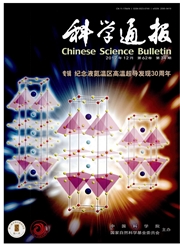

 中文摘要:
中文摘要:
肺部给药作为一种非侵入性给药方式,在蛋白质、多肽类药物及肺部疾病药物的研究中得到快速发展. 具有低质量密度(〈0.4 g/cm^3)和较大几何粒径(〉10.0 μm)的载药高分子多孔微球,可以在肺部有效地沉积并且减少肺部巨噬细胞的吞噬,实现药物的局部或全身传递. 高分子多孔微球作为药物载体必须具备生物相容性和医用功能性2个基本特征. 本文主要综述了近年来对该基本特征进行生物学评价的研究进展,并对研究中存在的问题提出建议. 其中生物相容性评价内容涵盖细胞、整体、分子3个水平;医用功能性评价内容包括肺内沉积、肺部清除与吸收和载药高分子多孔微球的药效学研究进展.
 英文摘要:
英文摘要:
As a non-invasive administration method, inhalable pulmonary drug delivery is suitable for the delivery of protein-and peptide-based drugs to treat lung diseases. Porous polymeric microspheres, which possess low mass densities (〈0.4 g/cm3) and large mean geometric diameters (〉10.0 μm), provide local or systemic drug delivery as they are deposited directly in the lung, and the uptake by alveolar macrophages is reduced. As inhalable drug carriers, porous polymeric microspheres should be biocompatible and offer in vitro drug-release properties. We review the progress in biological evaluation of these microspheres and propose solutions for the current problems. The biocompatibility evaluation of porous polymeric microspheres has been summarized at cellular, integrated and molecular levels. The medical function evaluation has been conducted on lung deposition, clearance and absorption within the lung and pharmacodynamics of drug loaded porous polymeric microspheres.
 同期刊论文项目
同期刊论文项目
 同项目期刊论文
同项目期刊论文
 Generation of porous poly-L-lactide microspheres by emulsion-combined precipitation with a compresse
Generation of porous poly-L-lactide microspheres by emulsion-combined precipitation with a compresse Preparation of methotrexate-loaded, large, highly-porous PLLA microspheres by a high-voltage electro
Preparation of methotrexate-loaded, large, highly-porous PLLA microspheres by a high-voltage electro Influence of different divalent metal ions on the properties of alginate microcapsules and microenca
Influence of different divalent metal ions on the properties of alginate microcapsules and microenca The in vitro and in vivo Anti-Tumor Effects of MTX-Fe3O4-PLLA-PEG-PLLA Microspheres Prepared by Susp
The in vitro and in vivo Anti-Tumor Effects of MTX-Fe3O4-PLLA-PEG-PLLA Microspheres Prepared by Susp Codelivery of paclitaxel and small interfering RNA by octadecyl quaternized carboxymethyl chitosan-m
Codelivery of paclitaxel and small interfering RNA by octadecyl quaternized carboxymethyl chitosan-m Preparation and in vitro antitumor effects of cytosine arabinoside-loaded genipin-poly-l-glutamic ac
Preparation and in vitro antitumor effects of cytosine arabinoside-loaded genipin-poly-l-glutamic ac Study of Lysozyme-Loaded Poly-L-Lactide (PLLA) Porous Microparticles in a Compressed CO2 Antisolvent
Study of Lysozyme-Loaded Poly-L-Lactide (PLLA) Porous Microparticles in a Compressed CO2 Antisolvent Formation of methotrexate-PLLA-PEG-PLLA composite microspheres by microencapsulation through a proce
Formation of methotrexate-PLLA-PEG-PLLA composite microspheres by microencapsulation through a proce Study of Fe3O4-PLLA-PEG-PLLA magnetic microspheres based on supercritical CO2: Preparation, physicoc
Study of Fe3O4-PLLA-PEG-PLLA magnetic microspheres based on supercritical CO2: Preparation, physicoc Biological evaluation of Fe3O4-poly(L-lactide)-poly(ethylene glycol)-poly(L-lactide) magnetic micros
Biological evaluation of Fe3O4-poly(L-lactide)-poly(ethylene glycol)-poly(L-lactide) magnetic micros Preparation of Poly-(Methyl vinyl ether-co-maleic Anhydride) Nanoparticles by Solution-Enhanced Disp
Preparation of Poly-(Methyl vinyl ether-co-maleic Anhydride) Nanoparticles by Solution-Enhanced Disp Preparation of Ibuprofen-loaded Poly-(Methyl Vinyl Ether-co-maleic Anhydride) Nanoparticles by Solut
Preparation of Ibuprofen-loaded Poly-(Methyl Vinyl Ether-co-maleic Anhydride) Nanoparticles by Solut Preparation of Protein-loaded Poly(L-lactide) Microspheres by Solution-Enhanced Dispersion by Superc
Preparation of Protein-loaded Poly(L-lactide) Microspheres by Solution-Enhanced Dispersion by Superc Molecular Biocompatibility Evaluation of Poly-L-Ornithine-Coated Alginate Microcapsules by Investiga
Molecular Biocompatibility Evaluation of Poly-L-Ornithine-Coated Alginate Microcapsules by Investiga 期刊信息
期刊信息
